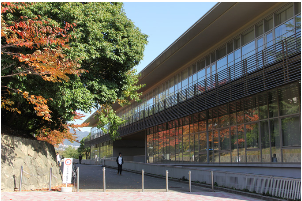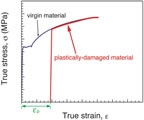|
Vol.7 No.1 |
|||||
| Academic Articles | |||||
| Regular Paper | Vol.7 No.1 (2015) p.108 - p.116 | ||||
Reliability Based Thermal Fatigue Evaluation Method against Random Fluid Temperature Fluctuations |
|||||
| Masaaki SUZUKI1, Naoto KASAHARA1 | |||||
|
1 The University of Tokyo, 7-3-1 Hongo, Bunkyo-ku, Tokyo 113-8656, Japan |
|||||
| Abstract | |||||
|
Japanese regulations for thermal fatigue issues are mainly based on the guideline of the Japan Society of Mechanical Engineers (JSME). However, the methods of the guideline include unclear safety margins, owing to existing uncertainties on loading and strength parameters. As a first step toward improving the JSME guideline to quantify safety margins with probabilistic approaches, a reliability evaluation procedure for thermal fatigue of mixing tees suitable for codes and standards has been discussed in this paper. While Monte Carlo simulations would be unsuitable for engineering use due to its cumbersome process and requirement for professional knowledge of probabilistic theory, simplified reliability analysis methods, such as the advanced first-order second-moment method, are more applicable in code designs. In addition, partial safety factors are easier to create a simpler measure of safety margins for code users who are unfamiliar with probabilistic reliability analysis methods. Thus, this paper has proposed a practical reliability evaluation procedure, which is based on the load and resistance factor design concept, for the thermal fatigue induced by random fluid temperature fluctuations in a mixing tee. |
|||||
| Keywords | |||||
| Thermal Fatigue, Mixing Tee, Best Estimate, Uncertainty, Reliability, Frequency Response, Power Spectral Density, Equivalent Stress, Load and Resistance Factor Design, Partial Safety Factor | |||||
|
Full Paper: PDF
|
|||||





